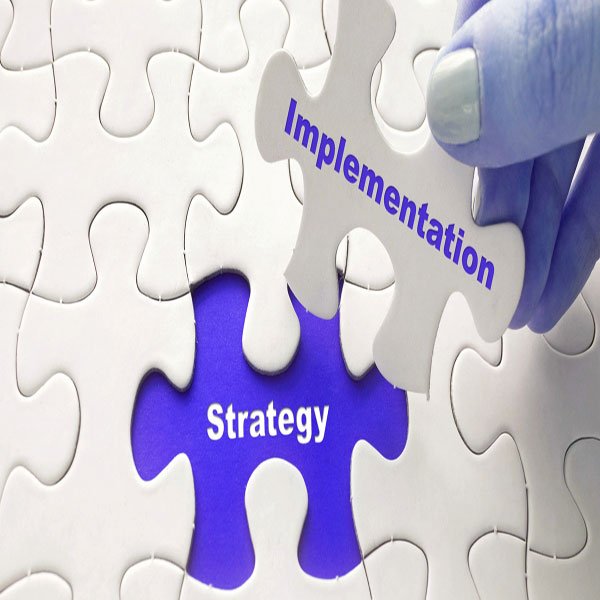Driving Success: Execution Depends on the Right Strategy, People, and Tools
It all starts with a vision, but achieving that vision depends on developing a strategy roadmap and finding the right people and operating tools to implement it.
During inflection points (such as a failed strategy, a shift in the market, a badly missed sales plan, product delays, or running out of cash), companies need more than a strategy consultant. They need help executing the roadmap to get them where they need to be. Consultants with experience that combines “theory and practice” across multiple companies and markets will be able to quickly conduct a business assessment, develop a roadmap, and start executing on key action items alongside the existing management team and the board.
Building a strategy map needs to be done on multiple levels and requires constant updating. To develop a long-range strategic plan (looking three to five years out), you must first articulate the opportunity, do SWOT and competitive analyses, take the time to look at analogs and anti-logs (how you will do things differently), test any leaps of faith, and consider external factors. Next, you should create an operational roadmap for the next 12-months outlining key tasks for each functional area (sales, marketing, development, IP, regulatory, etc.), showing the time frames, funding, and dependencies between tasks⏤all of which should fit within the funding and skills resources you have.
The third step is to put together a financial plan that supports your operational plan.
The right people and skills
When you have CEO turnover or skills gaps on the management team, consulting groups with operational expertise provide the best value-add. They can assess the situation and make recommendations on appropriate action, but, when required, also execute on those recommendations. And, in some cases, they can use their depth and breadth of experience to convert threats into opportunities. Experienced interim management team resources can provide the skills you need, when you need them, and also use their networks to identify the right full-time hires to take over after they leave.
An operationally focused consultant can make sure that the right employee-facing tools are in place, including skills inventories, employee development plans, recruiting processes, compensation plans (including option pools and bonus objectives), hiring/ termination procedures, and methods for communicating company mission/values, enabling you to attract and retain the best people with the right skills.
Effective KPIs and operating controls
We advocate having a straightforward operating roadmap outlining the key tasks, timeframes, and funding requirements for each operating area of your company (development, sales, customer support, finance, etc.). This operating roadmap is designed and frequently updated so that, when tasks are completed across all operating areas, you should achieve your vision and exit goals. An operations-oriented consultant can help you identify or refine Key Performance Indicators (KPIs) in each operating area and develop dashboards to track activity and provide feedback on whether people or departments are meeting, exceeding, or failing to meet the targets set in the roadmap. Creating a system of accountability for targets is key. Useful KPIs include: sales metrics, renewal/retention data, recurring gross profit, annual contract value, product line profitability, headcount statistics, and cost tracking. Without such a monitoring device, it is impossible to stay on track, manage the required operating objectives, and ultimately meet your strategic goals. Keeping management-level KPIs relevant and simple allows highlighting of green, yellow, and red areas for attention.
Beyond KPIs, many tools span the spectrum from basic operating controls to more advanced tools such as risk management. Operating controls, such as approval matrices, purchasing controls, expense policies, cash management procedures and employee-facing systems proactively keep all people in the company making decisions that meet the financial plan underpinning the operations roadmap. Risk management tools can help you avoid possible failure points and include such actions as safeguarding cash, having an investment policy, monitoring IP assets, scanning legal and employee exposure areas, making sure key man and overall insurance programs match operations, monitoring regulatory and statutory compliance and environmental risks, reviewing customer and vendor concentrations, among others.
Leverage the board
Leveraging Board of Directors and Advisory Board resources is like having the best map application on your mobile phone. It gives you both the optimum route and warns you about what lies ahead. Yet the board is underutilized by many companies. Putting the right people on your boards, pairing them with operations people, ensuring they receive timely KPI and dashboard information, and leveraging their extensive networks and experience allows you to identify critical failure points before they happen as well as key opportunities for growth.
The need for operational expertise
In sum, working with a consulting group with operational expertise and a team concept to servicing clients, like Marlborough Street Partners, will ensure that your company has the right strategy roadmap, the right people and skills, and the right implementation tools:
• To manage resources to develop your product/service and prove out the business model
• To scale the business quickly and use capital efficiently
• To bring order and predictability to the entrepreneurial process
• To permit the company to attract and retain the best talent, and
• To gain competitive advantage.
Jennifer Gabler, Partner

